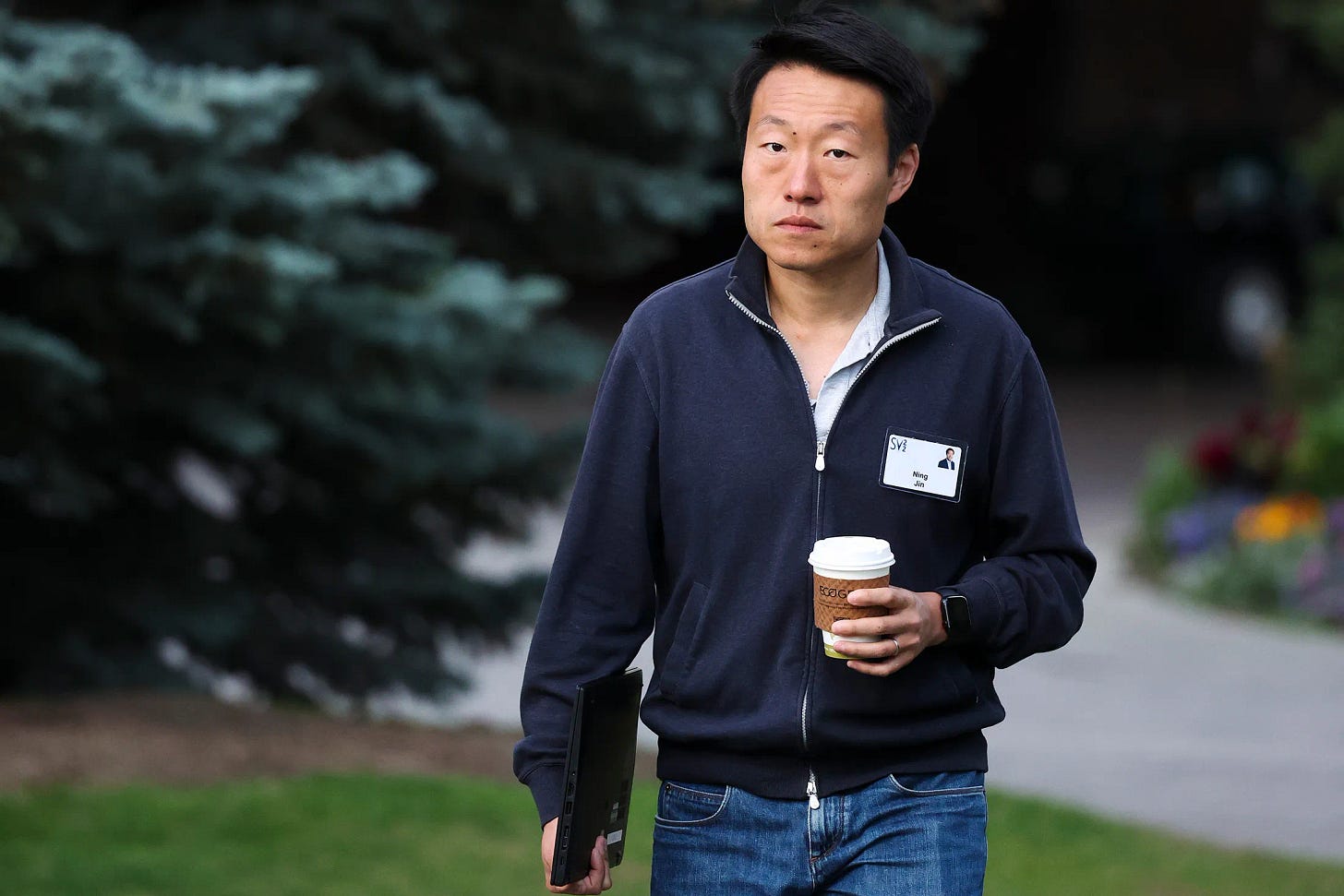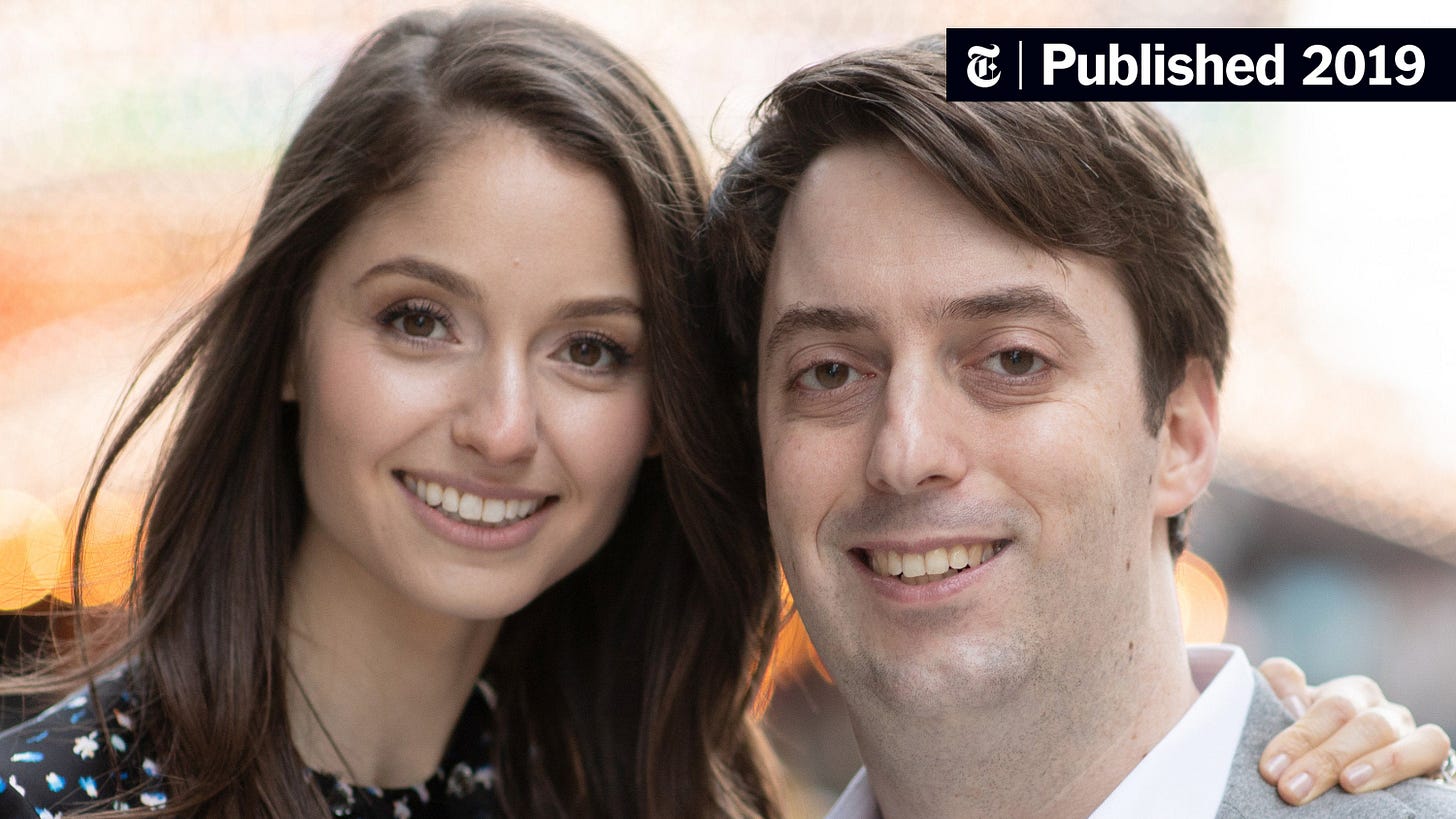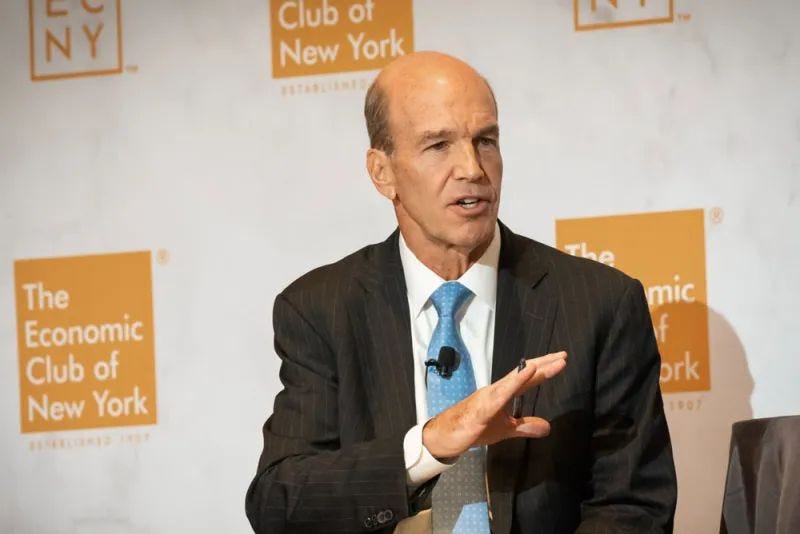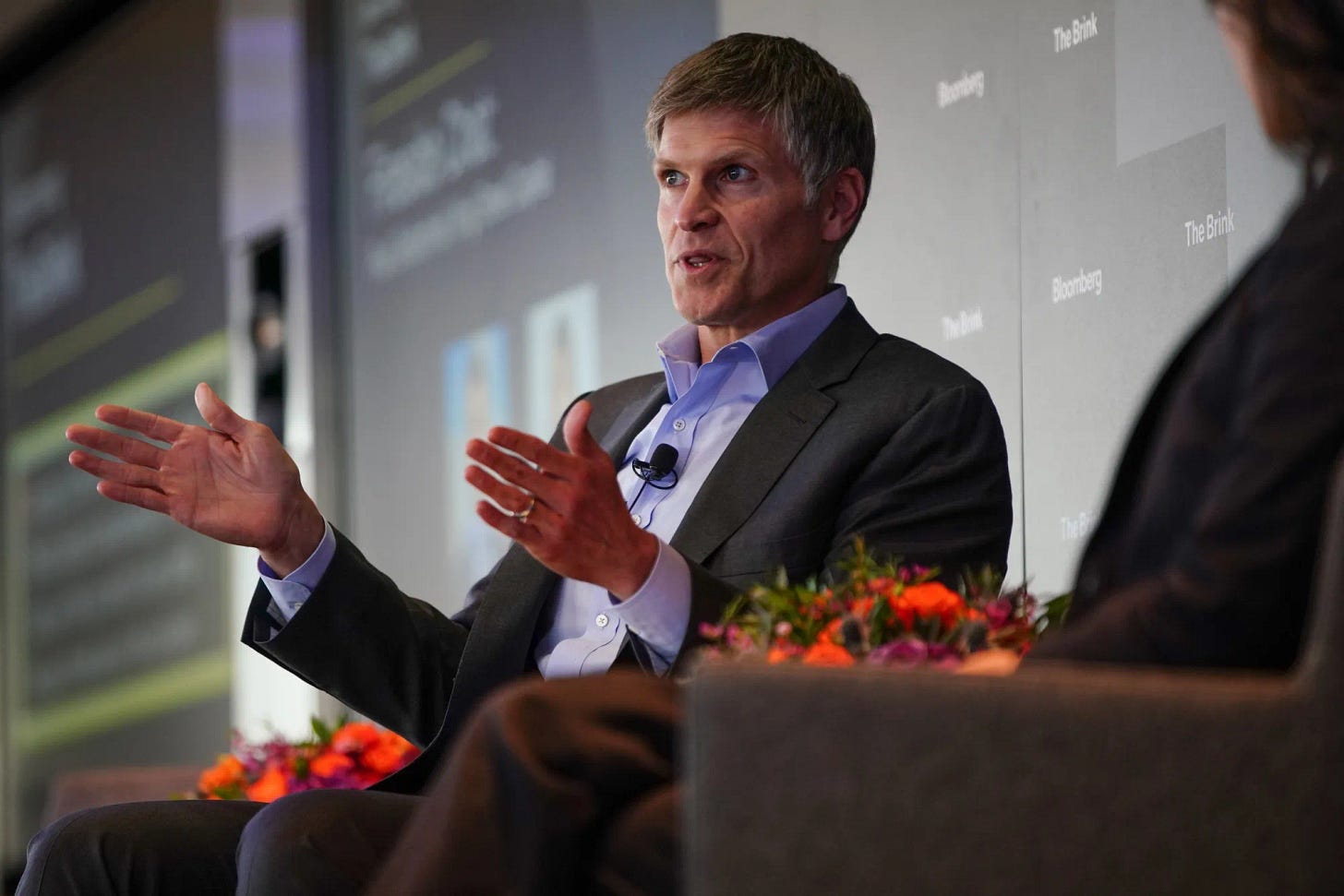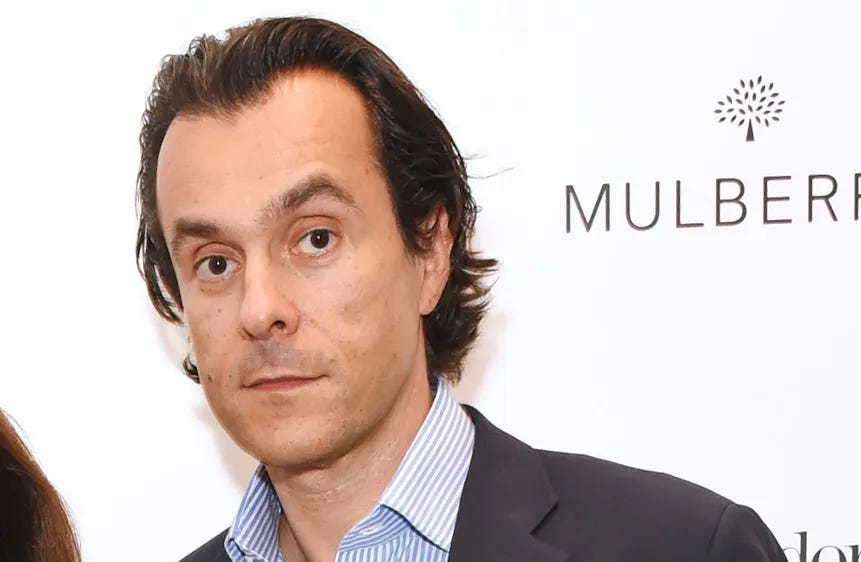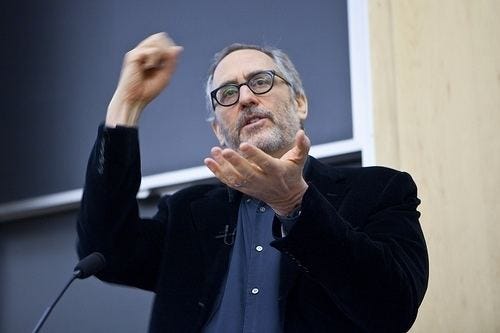Even though the Fund Primer is “completed” — and I can only promise an annual refresh (because updating it ad-hoc is insanely time-consuming) — I can’t help myself: I’ve been sharing key hedge fund headlines as they drop across my online presences.
With this article, I’m officially launching a new feature: a quarterly roundup of major hedge fund launches, shutdowns, and strategy shifts.
Since this is the first edition, I’ll be covering everything I’ve tracked since the start of the year.
Tiger Cubs
Viking Global lineage
Former Viking Global CIO Ning Jin’s new fund, Avantyr, is coming together.
According to filings, the firm will launch with about 10 investment staff and will focus on TMT, consumer, financials, and industrials.
Jin has already recruited a strong group of ex-analysts and associates:
Terrence Cheng (L2 Capital, Tybourne Capital) – Industrials
Adam Marcus (Maven, Tourbillon Capital) – Financials
Lea Zhang (Coatue) – Tech & Consumer
Christopher Parks (Matrix Capital, Tiger Cub David Goel’s firm)
Andrew Seketa (Blackstone) – TMT
Christopher Fletcher (KKR)
Alex Mendez (Viking)
Sunjay Mishra (Tourbillon, Director of Research)
Avantyr is aiming for a Q4 2025 launch and plans to raise at least $1 billion. Jin, who named the firm after the Italian word avanti (“forward”), left Viking in August 2024 after 17 years.
He now joins other former Viking CIOs turned founders — Dan Sundheim (D1 Capital), Tom Purcell (Alua Capital), and Ben Jacobs (Anomaly Capital).
Source: Business Insider, August 28, 2025
Alix Karlan’s Otter Rock — launching this fall with $300M, focused on companies undergoing technological disruption.
Karlan was Head of Tech at Alua Capital (founded by ex-Viking CIO Tom Purcell and Lone Pine’s Marco Tablada) and began his career at Viking Global before attending Stanford GSB. The firm will be based in Stamford, CT.
Source: Business Insider, Oct 9, 2025
Coatue lineage
Daniel Senft, former Head of Public Equities at Philippe Laffont’s Coatue Management, is preparing to launch NX1 Capital in January 2026 with about $1 billion. He’s bringing along Alex Izydorczyk (former Coatue head of data science), and Mike Burke (ex-Glenview Capital) as CFO.
Source: Business Insider, Oct 9, 2025
Lone Pine lineage
Benjamin Mandel — son of Lone Pine Capital founder Stephen Mandel — is starting Fremen Capital, in Stamford, CT.
The younger Mandel previously worked at Discovery Capital (founded by Tiger Cub Robert Citrone) and will run a long/short strategy across TMT, consumer, healthcare, industrials, and financials, primarily in the U.S. and Western Europe. According to its Form ADV, Fremen already manages $150M+.
Source: Business Insider, Oct 9, 2025
Rubin cub
“Rubin Cub” Frank Brosens’ Taconic Capital Advisors is closing its $1.8 billion flagship multi-strategy hedge fund after years of middling returns. The move will streamline the firm around its strongest businesses — North American credit and merger arbitrage — while spinning out its European credit arm.
Taconic’s Opportunity Fund, launched in 2004, has returned 5.8% annualized, lagging the PivotalPath Event Driven Index’s 7.8%. The fund hasn’t posted a double-digit annual gain in more than a decade.
The shake-up follows a string of changes. Taconic shut its commercial real estate unit this year, selling one of its funds to Axonic Capital. In 2023, CIO Christopher DeLong exited to launch Birnam Oak Advisors, paving the way for Nate Kempner — grandson of Davidson Kempner co-founder Thomas L. Kempner — to become co-CIO alongside Brosens.
Going forward, Taconic will run its $360 million merger arbitrage fund and launch a new evergreen Credit Opportunities fund.
Investors in the shuttered Opportunity Fund can transfer capital into the merger arb or credit vehicle, or split between the two, starting October 1.
Brosens will step back as co-CIO to serve as chairman, with Kempner taking over as sole CIO and CEO.
Meanwhile, Taconic’s London-based European credit team will spin out in January 2026 as Dolomite Capital, taking with it $1.1 billion in assets under management.
Source: Bloomberg, Sep 12, 2025
King Street
In early September, Bloomberg reported that former King Street Capital partner Paul Goldschmid is launching Harvey Capital Partners, a credit-focused hedge fund expected to start trading in Q4 2025 with more than $1 billion—one of the year’s largest debuts. The firm had raised $500 million by June.
Goldschmid co-founded Harvey with David Cohen, who spent 12 years at Two Sigma Investments as global head of investor relations and previously worked at D.E. Shaw and BlackRock. Goldschmid will lead investing, while Cohen oversees operations.
Goldschmid spent nearly 19 years at King Street, joining its four-person global investment committee in 2012 and co-managing hedge fund and drawdown strategies across corporate, structured credit, claims, and liquidation.
Harvey Capital’s senior team includes:
John Sette (ex-Vista Equity), head of trading
Bob Ryan (ex-Silver Point), special opportunities research
McLean Copus (15 years at King Street), corporate credit research
Daniel Ehrmann (ex-King Street restructuring head), restructuring
Ian Cohen, CFO/CCO (most recently Boundary Creek Advisors)
Source: Bloomberg, Sep 9, 2025
Eisler Capital
London-based Eisler Capital is shutting down after a rough stretch of weak returns, shrinking assets, and rising costs.
Its flagship Eisler Capital Multi-Strategy Fund is being wound down and will return capital to investors, aiming to distribute proceeds early next year.
The move is one of the clearest signs of the pressure facing smaller multistrategy hedge funds. Cracking the top tier—dominated by giants like Millennium Management, Citadel, and DE Shaw & Co.—is proving brutally hard. High fees, investor redemptions, and poor performance can quickly spiral into a death loop for a business model built on costly teams of traders betting across markets.
Eisler’s multistrat fund, down 1.7% this year through August, manages about $3.2 billion—off from $4 billion a year ago. Since inception, the firm says it’s delivered annualized returns of 7%. About 250 employees remain on staff.
The firm was founded in 2015 by Edward Eisler, a Russia-born, Austria-raised former Goldman Sachs star. Eisler joined Goldman in the 1990s, made partner by 30, and eventually ran the trading division. Along the way, he worked alongside future heavyweights like Harvey Schwartz (now Carlyle CEO, then Goldman CFO) and Pablo Salame (now Citadel co-CIO).
Eisler Capital started as a macro trading shop and built a solid track record before pivoting in 2021 to a multistrategy model—hoping to boost profits by spreading bets across specialized trading teams. After some early wins, the past couple of years turned challenging.
The firm cut 15% of staff in early 2025 and even enforced tough pay clawbacks on departing traders last year to slow an exodus to rivals.
Meanwhile, the biggest multi-strats keep getting bigger. Their scale lets them pay top dollar—sometimes millions—to poach the best traders, forcing mid-sized competitors to spend heavily just to stay in the game. For firms without that scale, the multistrategy model can quickly become unsustainable.
Source: Bloomberg, Sep 29, 2025
Longaeva Partners LP
Peter Goodwin — one of Dmitry Balyasny’s most expensive hires — has assembled a team of at least 13 investment professionals to launch a new equities trading unit inside Balyasny Asset Management (BAM).
Goodwin, a former Point72 money manager, is now running Longaeva Partners, an internal group expected to deploy up to $15 billion in leveraged capital. His team, known internally as “sector leads,” includes veterans from Citadel, Millennium, and other top-tier funds.
Longaeva — named after a tree known for its thousand-year lifespan — becomes BAM’s third equities-trading business, alongside Corbets and the firm’s flagship long/short equities unit. Goodwin joined BAM in 2024 with potential compensation exceeding $50 million, signaling the firm’s renewed push into stock-picking after a management shakeup.
Team Members - Sector focus (and former employer):
Andy Choo — Therapeutics (Citadel)
Brian Cogan — Services (Divisadero)
Chris Colliniates — Event Driven (Millennium)
Hersh Khadilkar — TMT (Citadel)
Matt Karo — Healthcare (Citadel)
Michael Mueller — Generalist (Third Point)
Moses Li — Consumer (Coatue)
Oliver Sigalow — Financials (Citadel)
Peter Chase — TMT (Davidson Kempner)
Phillip Shefter — Capital Markets (Norges Bank)
Ryan Hoadley — Consumer (Holocene)
Steve Colalillo — Energy (CDE Capital)
Yidong Xiang — Industrials (Greenland)
Goodwin’s arrival is central to Balyasny’s plan to rebuild its equities platform following the 2023 exit of division head Jeff Runnfeldt. Rather than continuing Runnfeldt’s approach of hiring lower-cost junior PMs, Balyasny has pivoted to a more aggressive strategy—bringing in senior talent with proven track records and big paydays.
Longaeva mirrors Citadel’s multi-unit structure, where Ken Griffin runs separate equities teams (Global Equities, Surveyor, Ashler, and International).
Through September 2025, BAM’s Atlas Enhanced hedge fund has returned 10% year-to-date.
Source: Bloomberg, Oct 9, 2025
D.E. Shaw
In mid-September, Bloomberg reported that quantitative investment giant D.E. Shaw is raising $3 billion to $5 billion from existing investors for its new D.E. Shaw Cogence Fund, a strategy where human traders—not algorithms—will make all the calls. The fund is set to begin trading on October 1, focusing on global opportunities across stocks and credit, with traders relying on fundamental analysis to gauge risk, pricing, and timing.
While D.E. Shaw is best known for its quant roots, the firm has long expanded beyond that niche—more than half of its hedge fund capital is now managed through discretionary strategies, where traders use their own judgment instead of models.
Interestingly, D.E. Shaw is among the few large funds still raising money, as many others remain closed to new investors. Some firms—including D.E. Shaw itself—have even returned capital to investors to keep fund sizes in check. That’s created a bit of a capacity crunch for investors searching for new places to deploy their money.
D.E. Shaw’s flagship Composite Fund and Oculus Fund, its second-largest that focuses on macro bets, have mostly been closed for the past decade. Like those funds, the new Cogence Fund won’t charge pass-through fees, a growing trend among multistrategy funds that often bill clients for everything from research to entertainment.
Source: Bloomberg, Sep 18, 2025
Walleye Capital
Walleye Capital is quietly incubating its next big strategy.
The $8 billion hedge fund has brought on two specialists to trade financial stocks—Jared Baker and Conor McDonnell. For now, their mandate is internal and exclusive to Walleye. If the strategy proves itself, the plan is to eventually spin it out as an independent fund open to third-party investors.
Baker joins from Kodai Capital, which was reported to close in April 2025. Earlier in his career, he traded at Citadel Global Equities and Balyasny.
McDonnell, meanwhile, comes from Azora Capital, a long/short fund focused on U.S. financials founded by Ravi Chopra, a veteran of Samlyn (formerly Sigma Capital under SAC) and SAC Capital itself. Before Azora, McDonnell also worked at Citadel’s Surveyor Capital.
The move reflects a growing trend: portfolio managers are increasingly launching strategies inside large multi-manager platforms before striking out on their own. Fundraising for new managers has become notoriously difficult. Big platforms like Walleye provide seed capital and institutional infrastructure, letting PMs concentrate on performance rather than scrambling for resources.
For Walleye, the incubation underscores its evolving ambitions. The firm has long wanted to broaden into a multistrategy powerhouse, but it recently pared back certain efforts to zero in on its strengths—volatility, quantitative, and fundamental long/short investing. It even paused new inflows to avoid the pitfalls of growing too large too quickly.
Walleye gained 17% in 2024 and is up another 8.8% through July this year. With Baker and McDonnell now in the fold, the firm is betting that incubating talent could be its next growth engine.
Source: Bloomberg, Aug 27, 2025
Hope you find this useful. Thanks for reading. I will talk to you next time.
My tools and insights for navigating public equity recruiting
Check out my other published articles:
📇 Connect with me: Instagram | Twitter | LinkedIn | YouTube
If you want to advertise in my newsletter, contact me 👇
If you enjoyed this article, please subscribe and share it with your friends/colleagues. Sharing is what helps us grow! Thank you.


